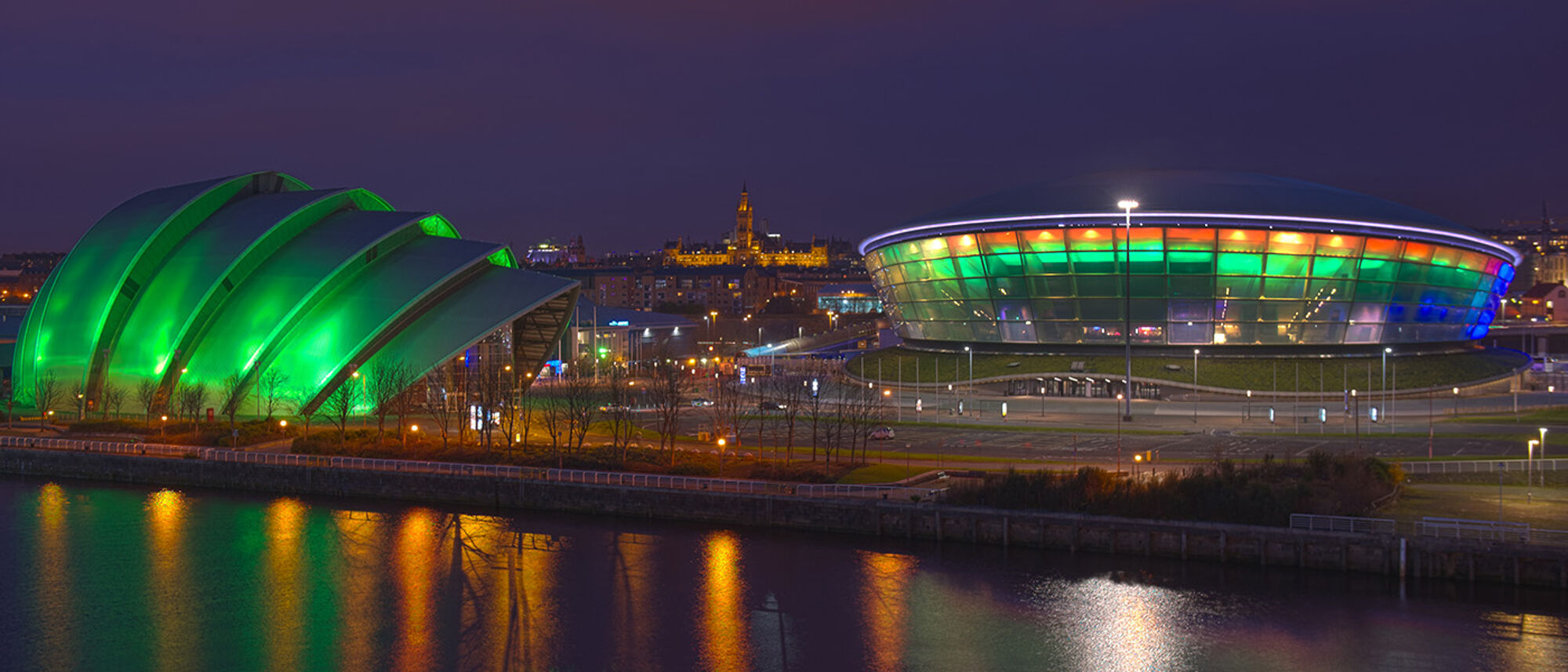
Top of the COPs
The University was centre stage when the city of Glasgow hosted the United Nations’ COP26 climate conference in November 2021.
COP26 was an urgent call to action to reverse the worsening climate crisis and set the world on track to recovery, but we took the initiative in combatting climate change long before almost 200 world leaders and 30,000 delegates gathered in Glasgow for the two-week summit.
As the first Scottish university to declare a climate emergency in 2019, we were well placed to show our impact and track record on sustainability at the COP conference, and had a significant contribution to make.
Among our UofG COP26 highlights...
We hosted over 200 events – physical, virtual and hybrid – to highlight and address climate change and the risks of the world’s inaction. These events included a 'Greener Gaming' hackathon; the Climate Challenge Cup, an international competition celebrating civic research partnerships; and Rising Up, a workshop equipping secondary schools to become informed, creative climate activists.
The world’s media broadcast globally from our campus. The US network ABC came live from the South Front as part of their morning programme Good Morning America, watched by ten million people, and our academics were interviewed by the BBC, ITN and the Australian Broadcasting Corporation. Our directory of climate change experts provided specialist information and advice to media, delegates and visitors.
We hosted the Global Landscapes Forum, the world’s largest knowledge-led platform on sustainable land use, which reached 60 million people on social media over its three-day duration, as well as a similar number through traditional media.
Our Centre for Sustainable Solutions was at the forefront of UofG activities. Launched in 2020 to bring climate education into the mainstream, the centre communicated research at UofG and developed international partnerships during COP. Our research was showcased on a world stage from our digital hub. We spotlighted a number of projects, among which those that examine:
• sustainable construction
• low-cost, printable solar cells
• using industrial by-products to capture carbon
• decarbonising the water sector and delivering clean drinking water
• producing ammonia for food production using greener methods.
The COP26 Youth Hub, directed by our student environmental team GUEST, ran the Student Journalism at COP26 project, allowing students to write and publish daily briefings and opinion pieces and interview politicians.
The Dear Green Bothy, a six-month programme of events and activities led by the College of Arts, demonstrated the crucial role played by the arts and humanities in addressing the climate emergency. It created virtual and physical spaces for the local and global community, staff, researchers, and students to come together to discuss and tackle a global issue affecting us all.
COP26 at UofG
Watch our full roundup of all the highlights of COP26 at UofG.
This article was first published January 2022.
Our COP26 legacy
The University’s Chancellor’s Fund has supported over 550 projects since 1999, across four fundraising themes, that impact the University and the wider community. In connection with COP26, a fifth fundraising theme supporting sustainability has been added to this which will advance projects aimed at tackling environmental sustainability in line with the University’s response to the climate change emergency.
The Fund has proudly supported green initiatives such as helping to grow the bee population, teaching local school children about the environment responsibly and The Dear Green Bothy project (see left).
Support for the Chancellor’s Fund allows us to effect change as our staff and students continue to develop incredible ways to impact our global community.
Our climate change credentials
UofG is making an impact in the fight against global warming with some of our world-changing research and initiatives:
Climate change and our changing coastline
A fight for survival in a warming world
Building a sustainable internet
UofG projects that are making a difference

